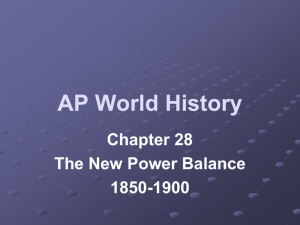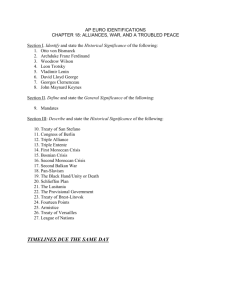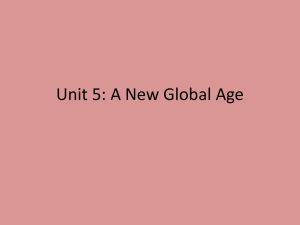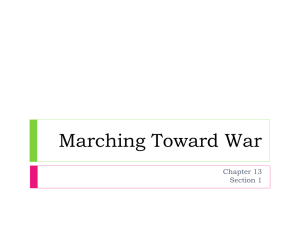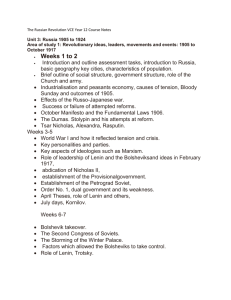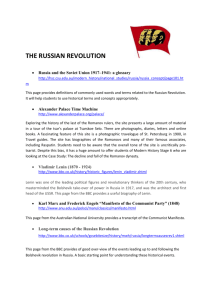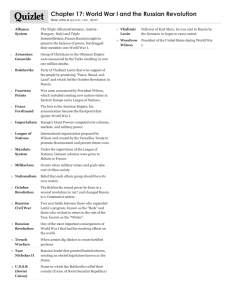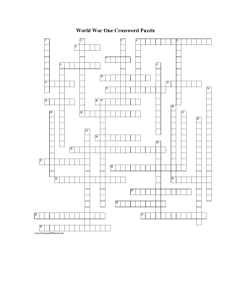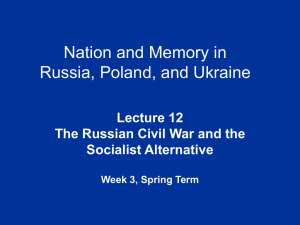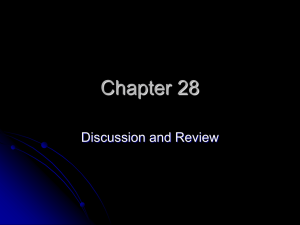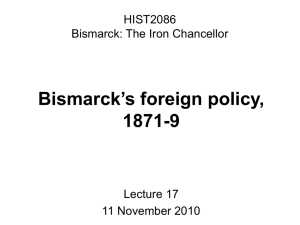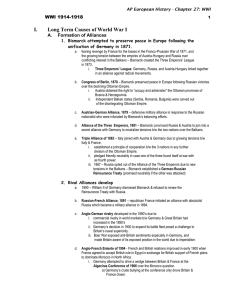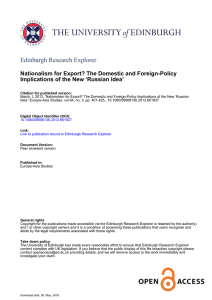Chapter 26 Reading Guide
advertisement
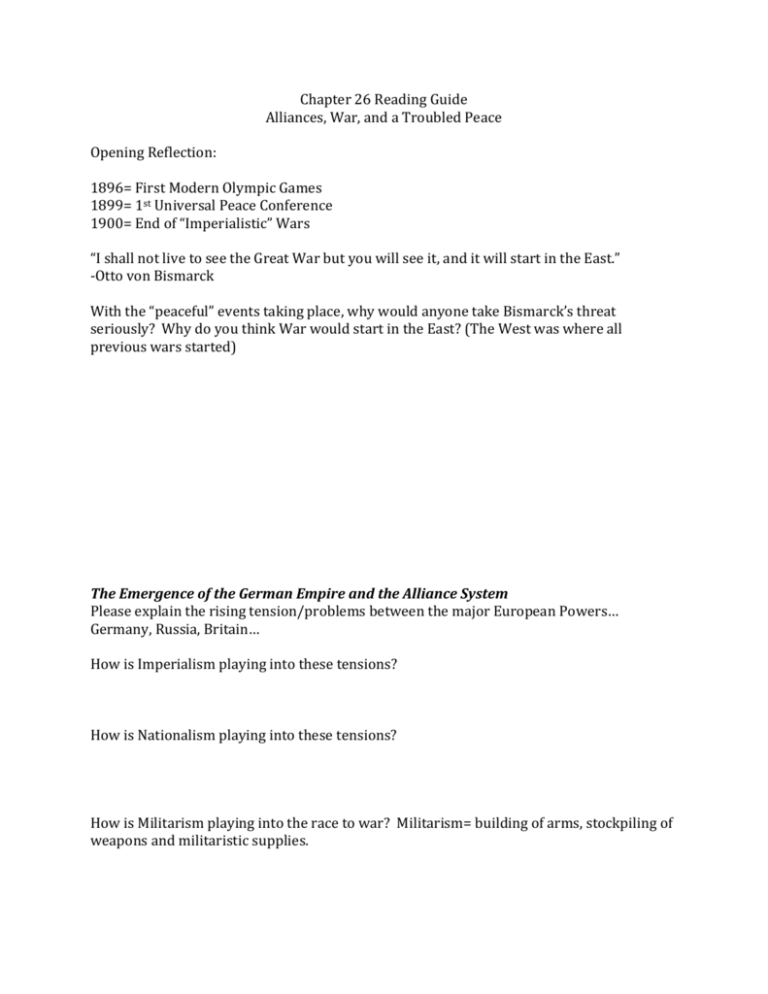
Chapter 26 Reading Guide Alliances, War, and a Troubled Peace Opening Reflection: 1896= First Modern Olympic Games 1899= 1st Universal Peace Conference 1900= End of “Imperialistic” Wars “I shall not live to see the Great War but you will see it, and it will start in the East.” -Otto von Bismarck With the “peaceful” events taking place, why would anyone take Bismarck’s threat seriously? Why do you think War would start in the East? (The West was where all previous wars started) The Emergence of the German Empire and the Alliance System Please explain the rising tension/problems between the major European Powers… Germany, Russia, Britain… How is Imperialism playing into these tensions? How is Nationalism playing into these tensions? How is Militarism playing into the race to war? Militarism= building of arms, stockpiling of weapons and militaristic supplies. Explain the First Balkan War… where was it, who was involved, what was the outcome? What happened at the Congress of Berlin? What was Bismarck’s role? Are there any specific treaties that may cause tension in Europe? Who were the “Three Emperor’s League” and why did they form an alliance? Who were the “Triple Alliance” and why do you think they were also called the “Central Alliance?” What was the relationship between Russia and Germany? Explain the Triple Entente… First maybe define entente Explain the Second Balkan War… where was it, who was involved, what was the outcome? What happened on June 28, 1912? What happened on June 28, 1914? What is an “Ultimatum?” Who was given one and why? How did the “Third Balkan War” turn into the Great War? Reflections on the Origins of the War Could the “Great War” been avoided? Why or Why not? Stalemate and Slaughter Was this war different from anything the world had seen? What were people’s expectations of this war? The Widening War pg. 895-900 Why were more countries fighting? Who was joining? Why was it spreading? The Home Front Mobilizing for Total War What is total war? Is it necessary in order to win the war? How did Governments regulate the economy to have “total war”? (give specific examples/legislation) What is Military Conscription? Was it necessary? What was the social impact of war in general? What was the social impact of TOTAL WAR? The United States joins the war 1917 President Wilson addressed the allies with his 14 points speech… Explain any significance? The Russian Revolution: The fall of Imperial Russia How did Nicholas II bring about his own “end”? Who is Rasputin? What did he do? The Provisional Government After the fall of the Tsar, what did the Russian people have? What is the Petrograd Soviet? What is Army Order No. 1? Lenin and the Bolshevik Revolution Who was Lenin? What were his principle beliefs? Who are the Bolsheviks? What are their beliefs? Who is Trotsky? What did he want? What happened between Lenin and Trotsky? Explain the “Whites” vs. the “Reds” What was the overall outcome of the Russian Revolution? Pg910 The Peace Settlement the armistice was officially called when? Three major events happened to “End” the war. Please list and explain the details of each of the following: The Treaty of Versailles… The League of Nations… The Balfour Declaration… Do you think this will truly bring peace to Europe? Why or Why not? Chapter 27 FRQ Questions Explain the importance of Bismark’s dismissal in the total course of events that led to the outbreak of World War I. The end of World War I was accompanied by revolutions and revolutionary activity throughout Europe. Describe this activity and identify its causes. How can we explain the failure of more radical revolutionary actions, such as occurred in Russia? Discuss the phenomenon of “total war” and its impact on the social, political, and economic structure of Europe during and after the war. The textbook asserts that World War I represented the triumph of nationalism. In what ways did nationalism contribute to the origins of the war, its outbreak, and the course of the war? How did nationalism affect the Versailles settlement? In January 1917, Russia was an autocratic empire; by the end of 1920, it was a socialist state. Trace the course of the Russian Revolution from March 1917 through 1920. How can we explain the ultimate victory of Lenin’s Bolsheviks? Discuss the impact of World War I on soldier and civilian populations. How were these impacts similar, and how were they different. “In spite of high-flown phrases about the right of national self-determination, the Treaty of Versailles perpetuated the imperialist world system established in the second half of the nineteenth century.” Explain and justify this statement.


